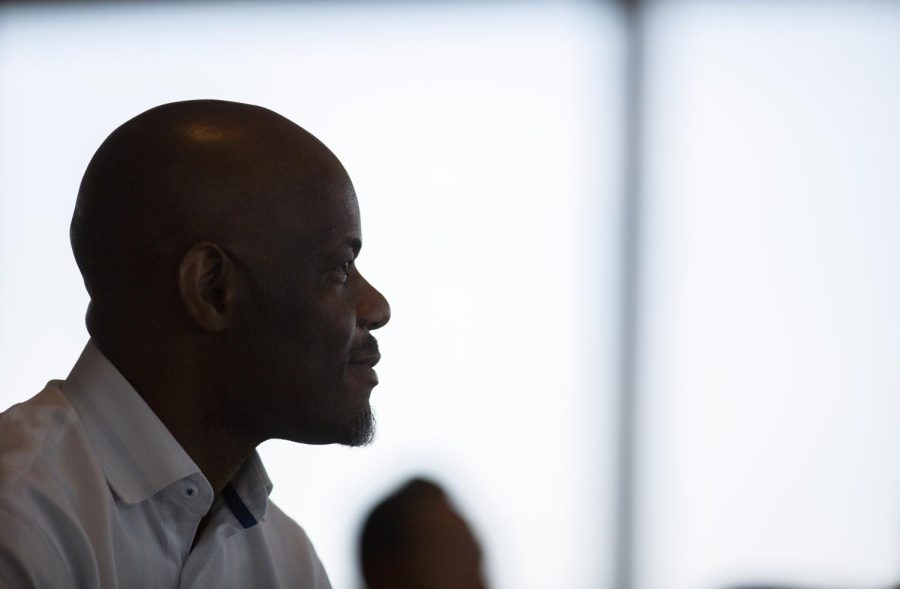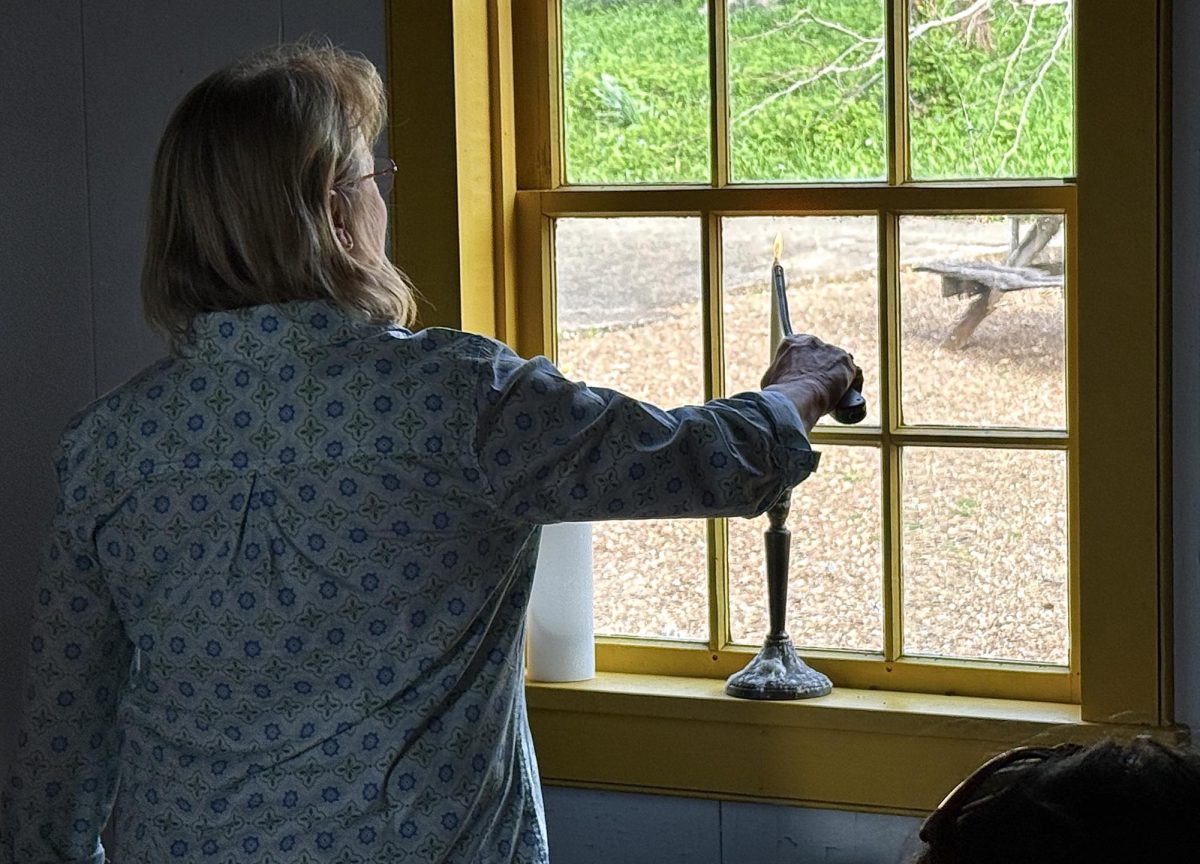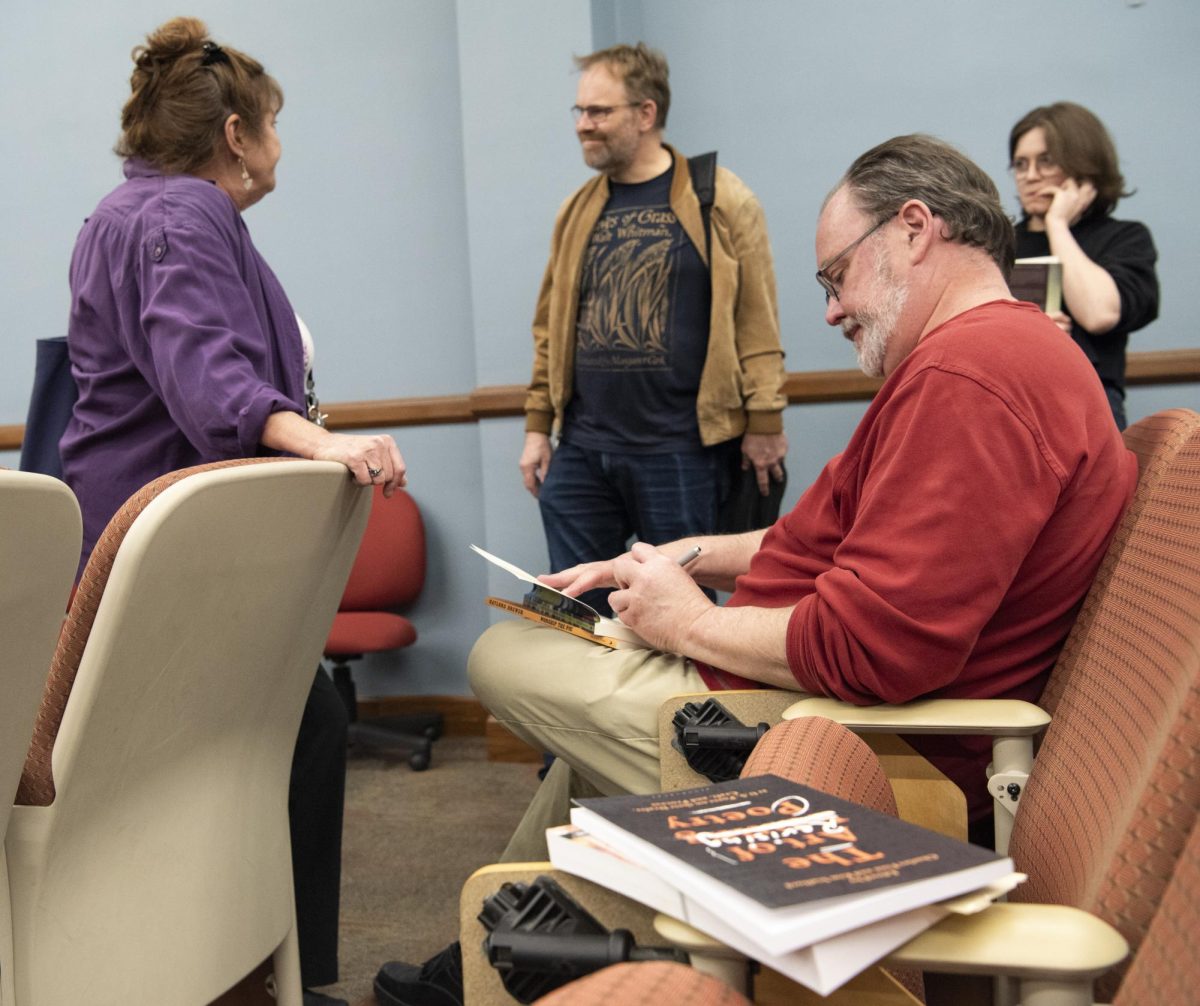Family 5,730 miles in the making
This story originally appeared in the Herald’s homecoming news magazine edition, published on Oct. 24.
Frank Aryee sits in his spot and awaits the end of the naturalization ceremony at the Muhammad Ali Center in downtown Louisville that will end his 11-year journey to U.S. citizenship on Friday, Sept. 2, 2022.
November 1, 2022
His naturalization ceremony was held atop the Muhammad Ali Center in Louisville, overlooking miles and miles of what is now his home.
He could not see his birthplace of Accra, Ghana, around 5,730 miles away. But Frank Aryee’s gaze drifted toward the back of the room, where well-dressed families hushed restless children in a dozen languages.
Among them, Jenni Aryee watched her husband, the father of her two children, with a bright smile and teary eyes.
Jenni was born in Bowling Green, around 115 miles away, but she had shared in Frank’s struggle at every step.
That night, back in their Bowling Green home, it began to set in — after a decade of bureaucratic hoops and barriers, fears and uncertainties, they could finally begin a new chapter.
The pressure of naturalization had become normal for them. But now, falling asleep beside each other, they felt weightless.
“I’m not a very good sleeper, but I slept good that night,” Frank said.
Kentucky Girl, Ghanaian Boy
Jenni grew up in Bowling Green. She began studying at WKU in 2000 at the age of 17. She “had no business being there,” she said — “really.”
“It was just kind of something you do, you go to college whether you want to go or not, so here I was,” she said. “I was going to do photojournalism, and I was like, ‘wow, that’s really what I want to do!’”
“Then I quit college,” she laughed.
She found a variety of odd jobs throughout the next few years. Her resume included camp counseling, ranching and even working at a ski resort.
Frank, then a stranger to Jenni, was pursuing his undergraduate degree in geographic information systems in Ghana and working with a land surveying company.
His first experience in the U.S. came when he studied in Florida in 2005. Homesickness made it a difficult few months, but when he got back to Ghana, he knew he would return to the states soon.
“In Ghana, it was very difficult for me to switch fields of study [to GIS] based on my background in psychology and sociology,” Frank said. “So my only option was to look elsewhere to the United States.”
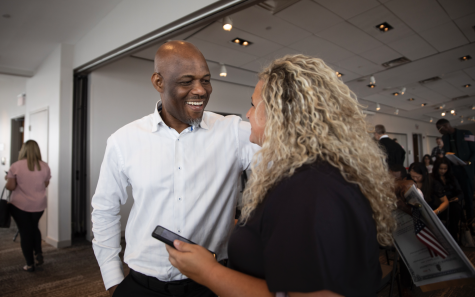
Sept. 2, 2022. (Tucker Covey)
If you had asked him then who Henry Hardin Cherry was, what alcohol Kentucky was known for or the name of that big horse race in Louisville, Frank wouldn’t have had a clue.
That didn’t stop him from accepting the offer to study at WKU in 2008. Financially, it made sense for him, but it had more than that to offer.
“It’s a beautiful place compared to where I came from, I like the infrastructure here, and I liked the fact that there are a lot of opportunities to meet friends and other people,” Frank said. “I knew that I had a bigger opportunity when it came to going back to the US.”
At that point, Jenni had returned to WKU for the third and final time and was nearing a degree in cultural anthropology.
One typical day, Frank and another student from Ghana stopped at Subway in the now-demolished Garrett Conference Center.
“He said ‘oh, let me call Katie and Jenni to come to eat something,’” Frank said. “That was the first time we ever met, behind Cherry Hall.”
The pair began talking strictly as friends since they were each in relationships of their own.
Frank said Jenni was funny, witty — just someone everyone could get along with. Jenni, on the other hand, said Frank was “so proper.”
“He’d wear khakis and a button-up polo,” she said, holding back laughter. “I was just like ‘aw, look at him.’”
They enjoyed each other’s company and hung out from time to time, but lost touch as they progressed through college. Jenni graduated in 2009 while Frank continued to pursue his master’s degree.
A Quick Cup of Coffee
Four years later, Jenni was working as a barista at Spencer’s Coffee in downtown Bowling Green.
Frank was in the process of defending his thesis at WKU and working with Connected Nations, a non-profit aimed at expanding broadband access. His office was less than a block away from Spencer’s.
One day, Frank stopped in for a coffee, only to find a familiar face at the counter.
“I was really excited to see him,” Jenni said. “I always thought he was cool, but I was like, ‘I totally thought you left, I just thought you moved on,’ and I never really thought about [it].”
One coffee became another, and Frank began visiting Spencer’s for lunch more often. Lunch became dinner, and within a few weeks Jenni was helping Frank paint his new apartment — or at least, giving him a hard time while he painted, she said.
They dated for six months before they were met with surprising news: Jenni was pregnant with their son, Nilai. While unexpected, neither of them were exceptionally worried. They were both in their thirties and had stable jobs to support themselves.
“We just knew it’s going to be okay. I didn’t think he was going to run away and cause problems, we just were like, ‘this is cool, we want to be parents,’” Jenni said. “We knew we would be good individuals, even if something were to happen — which I’m glad it never did, because we’re better together than apart.”
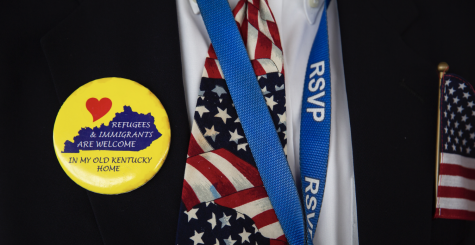
They were still learning how to “function” with each other, Jenni said, but they were in a stable place and happy to share a life.
Frank received his master’s in geoscience in 2014, and a year later welcomed a baby girl, Naaki, to the family. They weren’t yet married, but in many ways, Frank and Jenni began to resemble the long-fabled “American dream.”
But that dream would not be achieved without great difficulty. The same year of Naaki’s birth, Frank was let go from Connected Nations after grant funding came to an end.
He applied to GIS jobs across the country with no success. For the next four years, Frank worked numerous factory jobs to make ends meet. He often worked night shifts, making it hard to spend time as a family.
“He would sleep through the day and work through the night, and we never saw him,” Jenni said. “But he had to work to take care of all of us, and that’s all he could do for money at that time.”
Frank and Jenni agreed it was the most difficult point in their lives together. Jenni said at times she felt like a single parent, though she didn’t resent Frank for the work.
“I liked the guy,” she said, “I just wanted to be with him more.”
Frank knew he wanted to become a citizen when he left for WKU, but it wouldn’t come quickly. The path to citizenship is long and strenuous, involving numerous fees, forms and interviews.
A foreign-born person must first reside in the U.S. for five years before applying for U.S. citizenship. Many applicants turn to agencies and lawyers to guide them through the process — at a price.
Immigration lawyers were expensive, totaling thousands of dollars between consultations, fees, transportation and child care, but sped the process up considerably.
Once Frank passed his residency threshold, a lawyer he consulted with advised him to wait several years before applying.
During his first application in 2018, Frank wrote that he had two children with Jenni and that they were not yet married. However, he failed to disclose that he had been married once before. Frank and his partner had separated a year before he began dating Jenni.
His application was denied on the grounds of “moral character” and he was told to wait three years before reapplying. All of the time and money had seemingly been in vain.
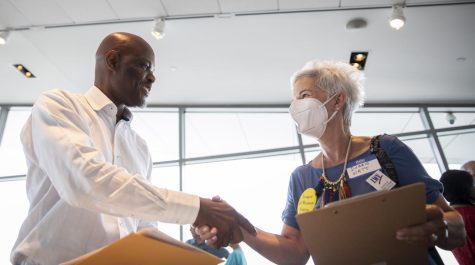
“I was frustrated for sure. I felt I was very qualified to be a citizen, and I was very responsible,” Frank said. “People think, ‘oh, you check a box and you’re a citizen,’ but it’s never like that.”
For years, Jenni had a lot of unanswered questions: Could Frank be sent back to Ghana? Could they relocate their family with him? How do they go about reapplying?
“You can’t really even talk to people about it,” Jenni said. “Nobody around you is going through this process; meanwhile, we’re going through this sadness, and […] it was just a really difficult time.”
The family faced immense financial pressure, but in 2019, things seemed to take a turn for the better.
Frank received a call from his former employer, Connected Nations. With newly acquired funding, they asked Frank to return to the organization, an offer he happily accepted.
Putting Down Roots
By 2020, the Aryees felt as though they had finally weathered the storm.
Frank and Jenni, who by now had lived together with their children for over five years, saw marriage as a bit of a formality.
“We are not your typical traditional people, we don’t like to do things the way everyone does it,” Frank said. “I’ll call it rebellious.”
Nevertheless, they figured it was time to make things official. They bought their first house and were married on Feb. 29, 2020 — a leap day.
“We got married in our house, in our living room,” Jenni said. “It was just us and the kids. My dad officiated, my mom was there, we had a photographer and a friend was a witness.”
Looking back, they said they wouldn’t have changed a thing.
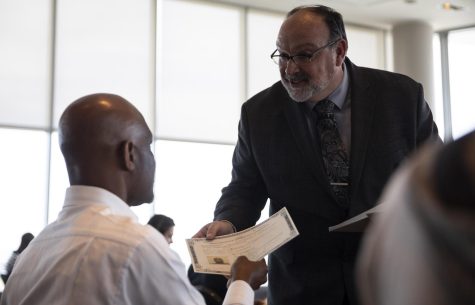
They planned to honeymoon in the Dominican Republic, but COVID-19 put those plans to rest.
Other than the cancellation, the family navigated the pandemic as best as they could. Frank found himself with an influx of business as at-home school and work created a rush of broadband demand.
“Things have been good ever since,” Frank said.
After his naturalization in April, Frank said life hasn’t changed much. He looks forward to voting, but otherwise just enjoys knowing that he’s now a citizen.
It’s a personal feeling, a “feeling of being part of the society around you,” he said.
“And now, you know, if I decide to be the mayor…” Frank said, chuckling.
“Or a congressman,” Jenni added.
Jenni said she now feels a sense of security she couldn’t imagine before. For the first time ever, she is undoubtedly sure that the man she loves, the father of her children, will stay in the U.S.
With Frank’s citizenship secure, they can think about his family in Ghana, who Jenni has yet to meet face-to-face. They can now sponsor relatives through the immigration process, making it significantly more forgiving.
They can also focus on Nilai, now 9, and Naaki, now 7.
“We want our kids to enjoy the world, to see the world as it is and embrace it, to enjoy it with an open mind,” Frank said.
The Aryees come home each night to the American dream, which often demands more work than one could possibly imagine. For them, it’s a labor of love.
Crayons and drawings sit strewn across the dining room table. Toys and rubber balls wait out of place for Nilai and Naaki to return from school.
In the backyard, hay covers the lawn and a sprinkler wets the earth in tall arcs. Shoots of young grass rise in patches around the straw.
Frank has been trying to reseed the backyard for a while, but it still has a long way to go. Jenni says she likes giving him a hard time about it, touches his arm and smiles at him.
City reporter Michael J. Collins can be reached at michael.collins527@topper.wku.edu.

